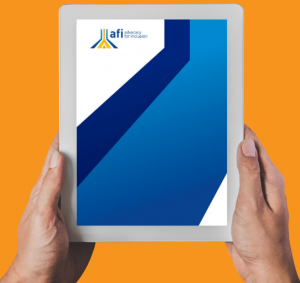
Advocacy for Inclusion (AFI) made a submission to the Senate Community Affairs References Committee inquiry into the Purpose, Intent and Adequacy of the Disability Support Pension. The inquiry will look at how the DSP is working, and the experiences of people accessing and receiving the DSP. The inquiry is also considering the current arrangements for facilitating and supporting workforce participation, and the impact on individuals, families and the community.
With significant input from our members and community, our submission highlights the lived experiences of many people who have accessed or attempted to access the DSP. This submission supports the recommendations of our community partner ACT Council of Social Service Inc. (ACTCOSS) and should be read in conjunction with their submission to the inquiry.
In this submission we provide examples of the procedural barriers people face in accessing the DSP, the challenges of Programs of Support and difficulties with information sharing, living on the low rate of the DSP and barriers to accessing employment. We also highlight the complexities of the application process, both for individuals and those who are supporting them.
Many people with significant disabling conditions are likely falling through gaps in the current DSP framework. We note that the majority of clients who have recently sought help from AFI to access the DSP have eventually been found eligible, even after being initially rejected or appealing decisions to exclude them from the DSP.
AFI emphasises that the DSP can provide essential support which allows people with disability to extend their capabilities and engage meaningfully and contribute to their communities in numerous ways, including by building work capacity.
Recommendations
In this submission AFI supports key recommendations from the Australian Council of Social Service (ACOSS):
- Remove ‘fully’ from ‘diagnosed, treated and stabilised’, noting that episodic and complex disabilities may never be fully stabilised.
- Return Treating Doctor Reports so people’s treating doctors have a clear understanding of the Impairment Tables relevant to their patient’s DSP claim and can provide a report addressing those tables, together with appropriate evidence.
- Abolish the Program of Support requirement. This requirement has only served to deny or delay access to DSP for people who need it and has failed to improve employment outcomes for people with disability.
- Grant DSP to people who do not meet the 20-point requirement under one Impairment Table, but score at least 20 points, if not more, across tables. The eligibility criteria must recognise someone’s incapacity if they have multiple disabilities or illnesses.
In addition, AFI provides the following recommendations:
- Provide assistance to reduce financial and administrative burden, such as a Medicare item, to support people with disability and health professionals to resource access to required medical evidence.
- Simplify eligibility requirements.
- Provide additional training and support for health professionals to understand DSP process and better support people with disability with provision of accurate and relevant medical evidence.
- Commit to maintaining and improving accessible communication, access and participation options, including human interaction options and in person services.
- Increase the payment rate of the DSP.
- Adjustments to DSP process and requirements focus on expanding the system to better support episodic conditions, mental illness or psychosocial disability and multiple or chronic conditions to extend support to increase capacity and sustain well-being.
